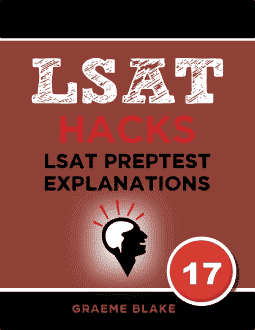QUESTION TEXT: In yesterday’s council election a majority of voters…
QUESTION TYPE: Flawed Parallel Reasoning
CONCLUSION: A majority of voters must have supported candidates who were both conservative and who voted in favor of the anti-pollution act.
REASONING: A majority of voters supported candidates who were conservative. A majority of voters also supported candidates who voted in favor of the anti-pollution act.
ANALYSIS: I’ll use number to show why this is wrong. Suppose 51% of voters voted for conservatives. And suppose 51% voted for anti-pollution candidates. That’s the bare minimum for a majority.
Let’s call the other party the liberals. They only got 49% of the votes. Let’s also suppose that they all voted for the anti-pollution act. How many conservative candidates would we have to add to that total to get 51%? Only 2%. 49% of conservatives could have voted against the anti-pollution act.
If you have two most statements with the same sufficient condition then there will always be some overlap. But we can never say that there will be significant overlap.
None of the wrong answers involve overlapping groups. That should be a big tip-off.
___________
- This is a bad argument but only because the claims are that plants “can” be damaged in wet soil. So any gardener who plants in wet soil merely risks damage.
- CORRECT. There will definitely be some children who like both pies and blueberries. But it needn’t be most. Also, there’s no reason to suppose that the children who like both enjoy eating blueberries in their pie. But this most closely matches the flaw.
- This is a bad argument since “not raining” was a necessary condition and not a sufficient condition.
- This is a bad argument because it ignores the customers who don’t regularly eat at the restaurant.
- This is a bad argument because no proof is offered for the conclusion. You can’t combine two most statement to produce another most statement. But this doesn’t repeat the error of the stimulus. That involved overlapping groups. Here we don’t even know who does the cooking. It could be a chef who doesn’t live at the house.
Recap: The question begins with “In yesterday’s council election a majority of voters”. It is a Flawed Parallel Reasoning question. Learn more about LSAT Flawed Parallel questions in our guide to LSAT Logical Reasoning question types.


Leave a Reply